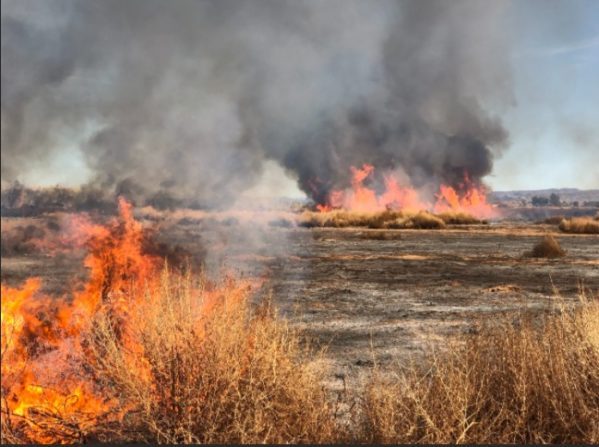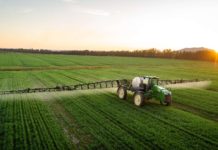BY : Sheunesu Hwande ,Gokwe North Nembudziya,Zimbabwe
I would not have done Justice if I talk about Agriculture without mentioning the environment because Agriculture deals with the sustainable exploitation of resources from our natural environment. The world we live in is deteriorating rapidly due to the dire consequences of climate change which manifest as droughts, floods, heat waves, diseases, water and air pollution, land degradation and desertification among other challenges. We must therefore be re-oriented to practice good environmental stewardship and west management through increased advocacy, education, training and awareness.
The term environment means the surroundings however, WIILIAN (2018) further alluded that environment is the sum of total elements, factors and conditions in the surroundings which may have an impact on the development, action or survival of an organism or group of organisms. Environmental management is the phenomenon that is rarely out of the news headlines, although we may feel that the topic is over emphasized and has lost meaning.
After a thorough assessment around Zimbabwe communal farming areas (HALL 1975)’s saying “WE DID NOT INHERIT THE EARTH FROM OUR FATHERS BUT WE BORROW IT FROM OUR CHILDREN” resounded on my mind and a great desire for environmental stewardship aroused within me. LEOPOLD (1949) defined Environmental stewardship as the responsible use and the protection of the natural environment through sustainable conservation practices. Several cultures across Zimbabwe have different words that underscore the need for team work in the fight against environmental degradation and contamination. RUME RIMWE HARIKOMBI CHURU, UMUNTU OYEDWA NGEKHE AGOMBOLOZELE INTABA One man cannot surround an anthill. The president of Zimbabwe came up with a declaration in 2018, It is a monthly clean up program that is being observed across the nation and it was themed”ZERO TOLARENCE TO LITTER, MY ENVIRONMENT MY PRIDE”
The growing concern for Shelter, farm land and fuel wood due to increased population is aggravating the rate of desertification this can be witnessed if one takes a tour around Zimbabwe’s Tobacco producing areas like Mashonaland West province and Mashonaland Central. Since agriculture involves the sustainable extraction of raw materials, there is need for a sound approach to environmental management. The encroachment to natural environment is alarming .Farmers clear land for cultivation removing all the vegetation cover thereby exposing the soil to erosion agents, depleting the area of its native plant species, wild animals and destroying the soil organisms. This cause an imbalance of agro-ecosystems.
Poor veld management and failure to calculate carrying capacity leads to overgrazing leaving the soil bare and vulnerable to surface runoff.
Burning of waste and veld fires remains a problem. It cause air pollution, it eliminates some organisms from our agro-ecosystem & this also outer the global carbon, nitrogen and hydrological cycles resulting in climate change that is charecterised by consecutive droughts in Zimbabwe
Excess irrigation results in salinalisation of soil (accumulation of salts, Loss of valuable land, leaching of minerals, dampness of weather, raising of water table and Marshy lands .On the efforts to replenish the lost nutrients from the soil the farmers are pumping out lot of money resulting in increased cost of production and low cash returns.
Excessive fisheries, draining of wetlands for construction of structures and buildings. Surface and ground water pollution by agrochemicals. Genetic piracy scientists have been able to patent genes from indigenous plants, animals and people without the consent of the native people.
WAY FORWARD – let’s practice farming methods that encompass Agricultural Sustainability. CLIMATE SMART AGRICULTURE It is an integrated approach to managing landscapes ,cropland,livestock,forests and fisheries that address the interlink challenges of food security ,farmer’s resilience and climate change.It is regarded as God’s way of farming, it’s friendly to the environment. Relevant authorities should work together with traditional leaders in legislation enforcement .Place to place awareness campaign programs should be conducted so that everyone will have the cognizance of environmental stewardship.
The Implementation of the principle of four Rs to Zimbabwean agriculture may help to maintain the natural state of our environment that’s Reduce, Re-use ,Recover and Recycle Reinforcement of COMMUNAL AREAS MANAGEMENT PROGRAMME for INDIGENOUS RESOURCES(CAMPFIRE) is a Zimbabwean community-based natural resource management program. It is one of the first programs to consider wildlife as renewable natural resources, while addressing the allocation of its ownership to indigenous peoples in and around conservation protected areas.
Making fire guards, controlled grazing (paddocking) and destocking.
Afforestation programs especially growing of MULTI- PURPOSE TREE SPICIES (MPTS)








